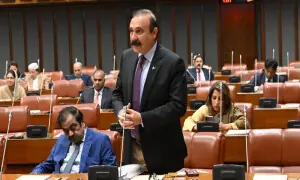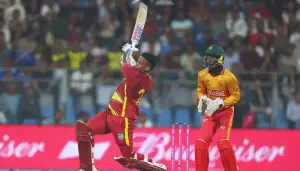Men’s, women’s teams to receive equal prize money: ICC
2 min readThere would be equal prize money for men’s and women’s teams at International Cricket Council events, the ICC said on Thursday.
“This is a significant moment in the history of our sport,” ICC Chairman Greg Barclay was quoted as saying in a blog. “I am delighted that men’s and women’s cricketers competing at ICC global events will now be rewarded equally.”
The decision was made during the ICC annual conference held in Durban, South Africa. The council has aimed at achieving achieve prize money parity by 2030.
Both teams would receive equal prize money for finishing in similar positions at comparable events as well as the same amount for winning a match at those events.
The ICC chairman added that they have increased prize money at women’s events every year since 2017. But from here on in, he added that winning the ICC Women’s Cricket World Cup would carry the same prize money as winning the ICC Men’s Cricket World Cup and the same for T20 World Cups and U19s too.
“Cricket is genuinely a sport for all and this decision from the ICC Board reinforces that and enables us to celebrate and value every single player’s contribution to the game equally,” he said.
In the past, the winners and runners-up at the Women’s T20 World Cup 2020 and 2023 received $1 million and $500,000 respectively. It was five times the amount offered in 2018.
The prize money for the Women’s Cricket World Cup 2022, too, rose from $2 million to $3.5 million.
Changes to over-rate sanctions
The ICC chief executives’ committee has supported modifications to the over-rate sanctions in Test cricket. The decision was taken to “strike a balance between the imperative of maintaining over-rates and ensuring fair remuneration” for players.
“The ICC World Test Championship has injected renewed energy into Test cricket giving it compelling context,” ICC Men’s Cricket Committee Chair Sourav Ganguly said.
It would be applied from the start of the current World Test Championship cycle
Under the revised regulations, players would be subjected to a fine equivalent to five per cent of their match fee for every over that falls short, with a maximum penalty capped at 50%.
“If a team gets bowled out prior to reaching the 80-over mark and the new ball is not yet due, no over-rate penalty will be imposed, regardless of any potential delays. This amendment supersedes the existing threshold of 60 overs,” it said.
For the latest news, follow us on Twitter @Aaj_Urdu. We are also on Facebook, Instagram and YouTube.



























Comments are closed on this story.